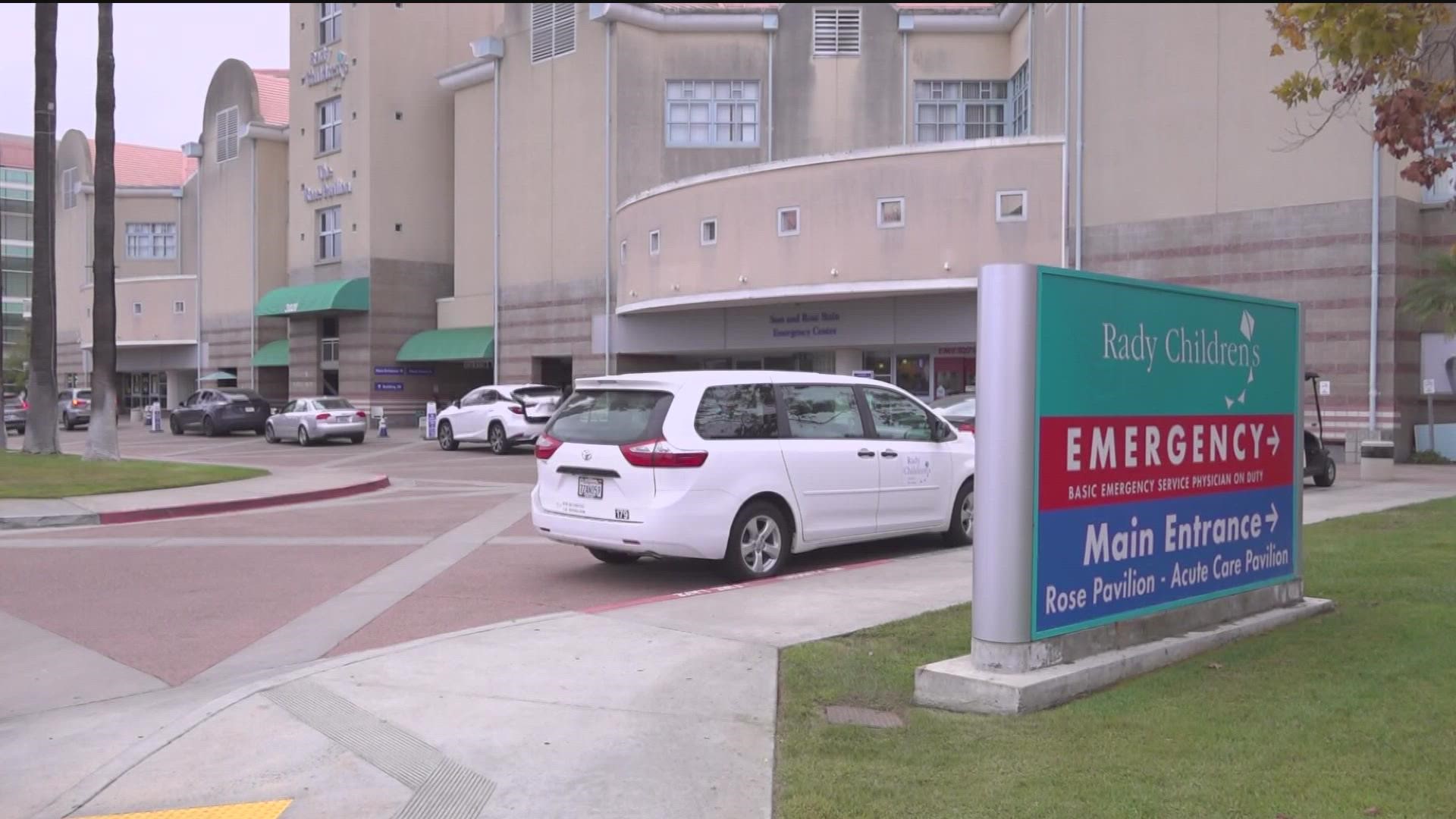SAN DIEGO — Rady Children's Hospital was at capacity Friday morning, with 56 patients in the intensive care unit.
Respiratory Syncytial Virus (RSV) is hitting San Diego earlier this year, thinly stretching medical facilities across the region.
San Diego County warned that a triple whammy of all three viruses circulating simultaneously could lead to strains on the already overburdened medical system.
“As we see a sharp increase of flu and RSV cases, I am urging San Diegans to do their part to prevent the spread of illnesses,” said Wilma J. Wooten, M.D., M.P.H., County public health officer. “While there’s no vaccine for RSV, ample vaccinations are available for the flu and COVID-19. These vaccines take two weeks to become fully effective, so people should get both shots as soon as possible.”
According to Rady's, an estimated 650 kids have tested positive for RSV in the past three weeks. While most children suffer mild symptoms and recover in a few days, doctors say babies and older adults are at a higher risk of developing more serious symptoms.
"The problem is when babies are small, when they breathe for oxygen, they haven’t learned to use their mouth yet," said Dr. Ahmad Bailony of Sharp Hospital. "They use their nose for breathing, so you can imagine if a baby is super congested and you’re trying to feed them with a bottle in their mouth, they basically can’t breathe."
Dr. Bailony said if your child's symptoms are mild, such as a low-grade fever and a stuffy nose, it's better to keep them at home than bring them into the emergency room.
Friday afternoon, wait times at Rady's were two to four hours long.
"If you’re sick enough to go to the emergency room, that means your kid is having trouble breathing. You can physically see them having difficulty," said Dr. Bailony.
He said another warning sign is if they’re not taking in enough fluids and their urine output is low.
Watch Related: Hundreds of children hospitalized with RSV in San Diego (Oct 25, 2022)

